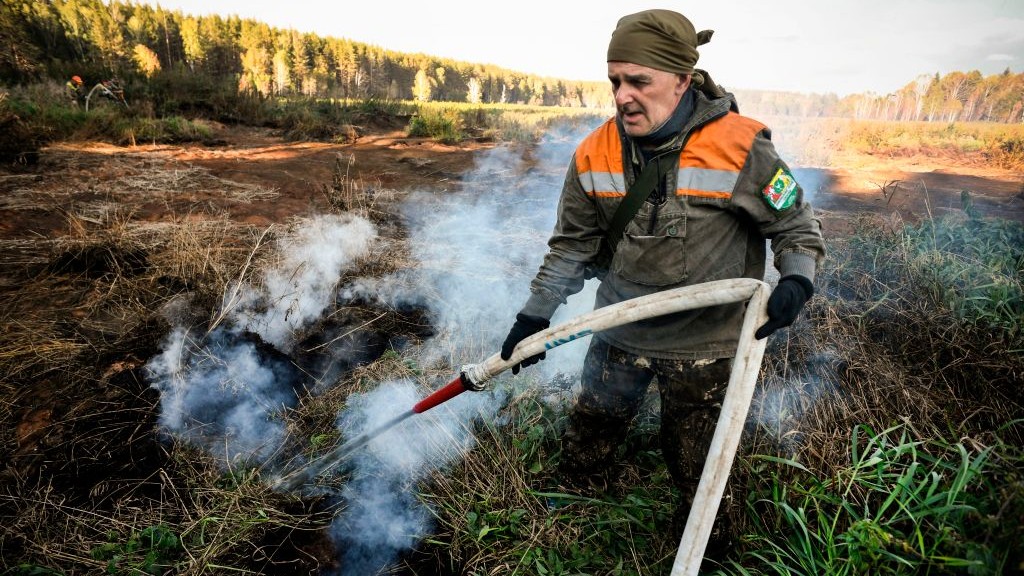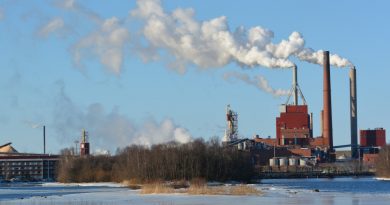WMO global temperature update finds 2020 one of three warmest years on record

The year 2020 shaped up to be one of the three warmest years on record, the World Meteorological Organization (WMO) said, confirming its earlier projections released in December.
“The confirmation by the World Meteorological Organization that 2020 was one of the warmest years on record is yet another stark reminder of the relentless pace of climate change, which is destroying lives and livelihoods across our planet,” said United Nations Secretary-General Antonio Guterres in a news release on Thursday.
“We are at 1.2 degrees of warming and already witnessing unprecedented weather extremes in every region and on every continent. We are headed for a catastrophic temperature rise of three to five degrees Celsius this century. Making peace with nature is the defining task of the 21st century. It must be the top priority for everyone, everywhere.”
International data
The conclusion on 2020 was determined through the WMO’s consolidation of international datasets from the United States National Oceanic and Atmospheric Administration (NOAA); NASA’s Goddard Institute for Space Studies (NASA GISS); the United Kingdom’s Met Office Hadley Centre and the University of East Anglia’s Climatic Research Unit (HadCRUT); and reanalysis datasets from the European Centre for Medium Range Weather Forecasts and its Copernicus Climate Change Service, and the Japan Meteorological Agency (JMA).
The data is gathered through observing sites, ships, global marine network buoys, marine observations and satellites.

The datasets used by the WMO found that 2011-2020 was the warmest decade on record, with 2016, 2019 and 2020 being the top three warmest years.
“The temperature ranking of individual years represent only a snapshot of a much longer-term trend,” said WMO Secretary-General Petteri Taalas. “Since the 1980s each decade has been warmer than the previous one. Heat-trapping gases in the atmosphere remain at record levels and the long lifetime of carbon dioxide, the most important gas, commits the planet to future warming.”
The year 2020 rivalled 2016 as the warmest year on record, but La Niña, a weather pattern that occurs every few years that cools the climate, came at the end of year, tempering some of the warm temperatures, the news release said.
“The exceptional heat of 2020 is despite a La Niña event, which has a temporary cooling effect,” Taalas said. “It is remarkable that temperatures in 2020 were virtually on a par with 2016, when we saw one of the strongest El Niño warming events on record. This is a clear indication that the global signal from human-induced climate change is now as powerful as the force of nature.”
Arctic data among standout features of 2020

Temperature impacts on the Arctic in 2020 were among the most striking features of the year, the WMO said.
The Arctic sea-ice extent in September was the second lowest recorded in 42 years of satellite records. And Siberian wildfires and temperatures in Arctic Russia were some of the most extreme on the planet. In June, a record-breaking 38 degree C temperature was recorded in the Russian town of Verkhoyansk, located above the Arctic Circle in the Republic of Sakha (Yakutia).
The wildfire season in the Russian Arctic was also the most active in the 18-year data record, with long-term damage reported in some ecosystems.
Final report in March
The temperature figures released this week will be incorporated into the WMO’s “State of the Climate in 2020″ report that will be released in March.
Write to Eilís Quinn at eilis.quinn(at)cbc.ca
Related stories from around the North:
Canada: Top 5 weather stories in the Canadian North for 2020, CBC News
Finland: Lapland temperature of -39 C marks year’s coldest day so far in Finland, Yle News
Greenland: Rise in sea level from ice melt in Greenland and Antarctica match worst-case scenario: study, CBC News
Russia: What is happening with Arctic weather? Moscow wants to know, The Independent Barents Observer
Sweden: Reducing emissions could create up to 3,000 new jobs in Arctic Sweden says mining group, Eye on the Arctic
United States: November ranks 2nd hottest on record for the Arctic and globe, Radio Canada International



